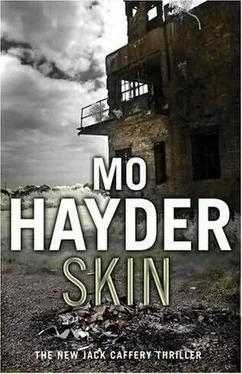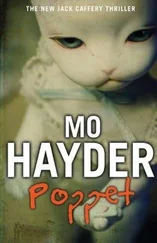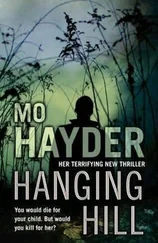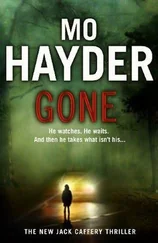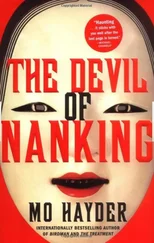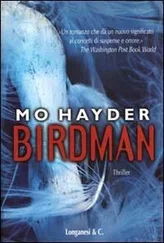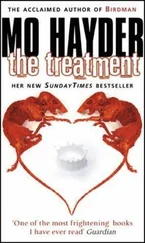They ate the sandwiches and waited for the download to finish. Then Caffery hit ‘set up’ and watched the programme unpack itself. He chose C drive to search, ticked ‘include used clusters by other files’, configured it to display the date the file was created, and set it in motion. The numbers in the ‘files found’ box spun round dizzyingly. In seconds the window had filled with folders, files of every extension, doc, xls, ppt. Near the top of the list a Word file had been created on 6 May, 9.30 p.m. Last Sunday. The day she’d gone missing. Titled ‘Goodbye’.
Caffery opened it and let all his breath out at once. The suicide note. He’d read it several times already at Wells and there wasn’t anything unusual in it: the same depressing stuff he’d seen too many times – too much pain to go on, life not worth living, no one who understands. Others killed themselves out of cowardice, or from the strain of living with the knowledge of what they’d done. People like Penderecki. But he’d never known anyone write a suicide note, print and delete it.
‘She didn’t write that,’ Mahoney said. ‘No way she wrote it. That’s not Lucy’s language.’
‘Someone else did, though. Wrote it and wiped it. If it had been on here, the search adviser would have found it.’
He scrolled through the list. ‘There are emails to the estate agent, all deleted, but he’s left others on the desktop. He’s only hiding specific things.’
Mahoney pointed to a folder halfway down the list. ‘Is that something?’
‘NatWest statements.’ Caffery restored it to its original location and opened it. It contained twenty-four jpegs, each titled by a month in the last two years. He opened one from January two years back. It was a scanned image of a bank statement. He gave a low whistle. ‘The missing statements.’
‘She was scanning them into the computer? To save space?’
‘Looks like it.’
Caffery opened the most recent one, dated this April. For a moment he and Mahoney stared at the screen, neither speaking.
Lucy Mahoney had died with the mortgage on her £200,000 house at just seven thousand pounds. There was another £190,000 in her savings account.
‘Je- sus ,’ Mahoney muttered. ‘What the hell was she up to?’
‘All coming in in cash.’ Caffery clicked into the other months. ‘Two thousand here, another eight thousand in December.’
‘Jesus.’
‘And look.’ He tapped the screen. ‘This is where it started. Almost two years ago.’
Both of them peered at the bank statement. Twenty-six months ago Lucy had been receiving a regular wage from her job at the Christmas-decorations factory. Then, in the May after she and Mahoney had separated, she’d made a one-off payment of £7,121. It had been a cheque – no indication of who the payee was. Two weeks after the debit the cash deposits had started.
‘Any idea what that seven grand payment was for?’
Mahoney shook his head. Wearily, as if he’d come to the end of anything like rational thought, he picked up the plate. He trudged into the kitchen, leaving Caffery at the computer, clicking through the scanned statements. There was a lot of money here. If it wasn’t from a rich boyfriend, if she hadn’t got a job and she hadn’t got a loan, where the hell was it coming from?
‘Blackmail.’ Mahoney had come back from the kitchen. He was holding out a steaming mug of coffee to Caffery. His eyes were cold and hard. ‘That’s it, isn’t it?’
‘I don’t know,’ Caffery said. ‘It’s one explanation.’
‘It’s the only explanation. She was blackmailing someone. They got fed up with it. Decided to put a stop to it.’
Caffery took the mug. ‘Tell you what, let’s start slowly, sensibly. Let’s start by getting the case reclassified.’
Caffery drove slowly back towards Kingswood, thinking about how he’d get Powers to authorize a warrant on the £7,121 cheque so the banks would go back into their records. It would take days. But the cheque was important. The more he thought about it, the more he thought Colin was right – Lucy had been blackmailing someone. And that seven grand was pivotal to the whole thing. She’d bought something – something expensive – and someone she’d encountered in the process was the one she had started blackmailing. Whoever it was had got fed up. Maybe her demands had become too much. They’d killed her and worked hard to cover the paper trail. He didn’t have much doubt that that was how it had happened.
Mahoney said she hadn’t felt threatened by the boyfriend. Caffery believed that. But the boyfriend was the key to all this. Not because he’d killed Lucy, not necessarily that, but somehow, somehow, he held a key. Whether he knew it or not.
Caffery slammed on the brakes. Behind him, a lorry had to swerve to avoid going into the back of his car, and the driver leant on the horn. Caffery pulled his unmarked Mondeo on to the kerb and came to a stop next to a bus shelter. Unsnapping the seat-belt he swivelled round, elbow on the back of the seat, and looked out through the back window. On the other side of the road, a sign was mounted on the roof of an electrical superstore. He must have driven past it a hundred times and never noticed it. Now it made things pop in the back of his head.
It was a golden oval set on its side. In black letters tooled into the middle was the word ‘EMPORIUM’. He waited for the pedestrian lights behind him to go red, then pulled out, did a U-turn into the opposite lane, and slipped into the turning that ran behind the superstore.
Something of an industrial estate had grown up down there, unplanned and piecemeal. Various businesses were dotted around in a hodgepodge of buildings overlooking a central car park that must have once been a farmyard. The Emporium was housed in what might have been an old farm building. As long and high-ceilinged as a hangar, with daylight and breeze coming in from both ends, it had the feel of a scrapyard under a tin roof. Everywhere reclamation pieces were piled high, vague walkways meandering around them.
A customer stood in the middle of the building, head down, concentrating on untangling the wire attachments on a crystal-drop chandelier. She wore a tribal-print dress tied with a belt and had very pale skin, her dark hair was backcombed and tied with a printed scarf. Her features in profile were beautiful, unusual, but closer he saw that the dark eyeshadow and plum lipstick were smudged. She didn’t look up or acknowledge him as he passed.
He skirted crumbling sash windows stacked in rows, a set of merry-go-round horses, a ship’s figurehead hanging from the ceiling. He went past the innards of a cider press, a row of knives in a worn leather tool-belt, and a low oak breaking bench, polished by years of use. The office was a square glass and wood-sided construction at the far corner. Inside, every shelf and surface was covered with oddments: old shell casings, dust-coated chandeliers, a cracked 1930s Betty Boop mannequin, a yellowing wedding cake in the shape of a church with a tiny dusty bride and groom in the doorway. Paperweights were wedged into the spaces – and for a moment he wandered around studying them, thinking he was alone. Then he noticed a man staring at him from the corner, standing half bent over the open drawer of a filing cabinet, so motionless that for a moment Caffery thought he was one of the fairground curios. ‘Hello.’
‘Yes?’ The man closed the drawer and straightened. ‘Can I help?’
‘You are?’
‘James Pooley. Who wants to know?’
Caffery opened his warrant card. ‘Got a moment?’
Pooley closed the cabinet, came forward and looked at the card. He was slim and vaguely feminine, his brown turtleneck expensive and finely woven, the thin leather jacket worn open, cuffs and collar turned up. There was more jewellery on his hands than a man should wear. His thick hair lay down to his collar.
Читать дальше
